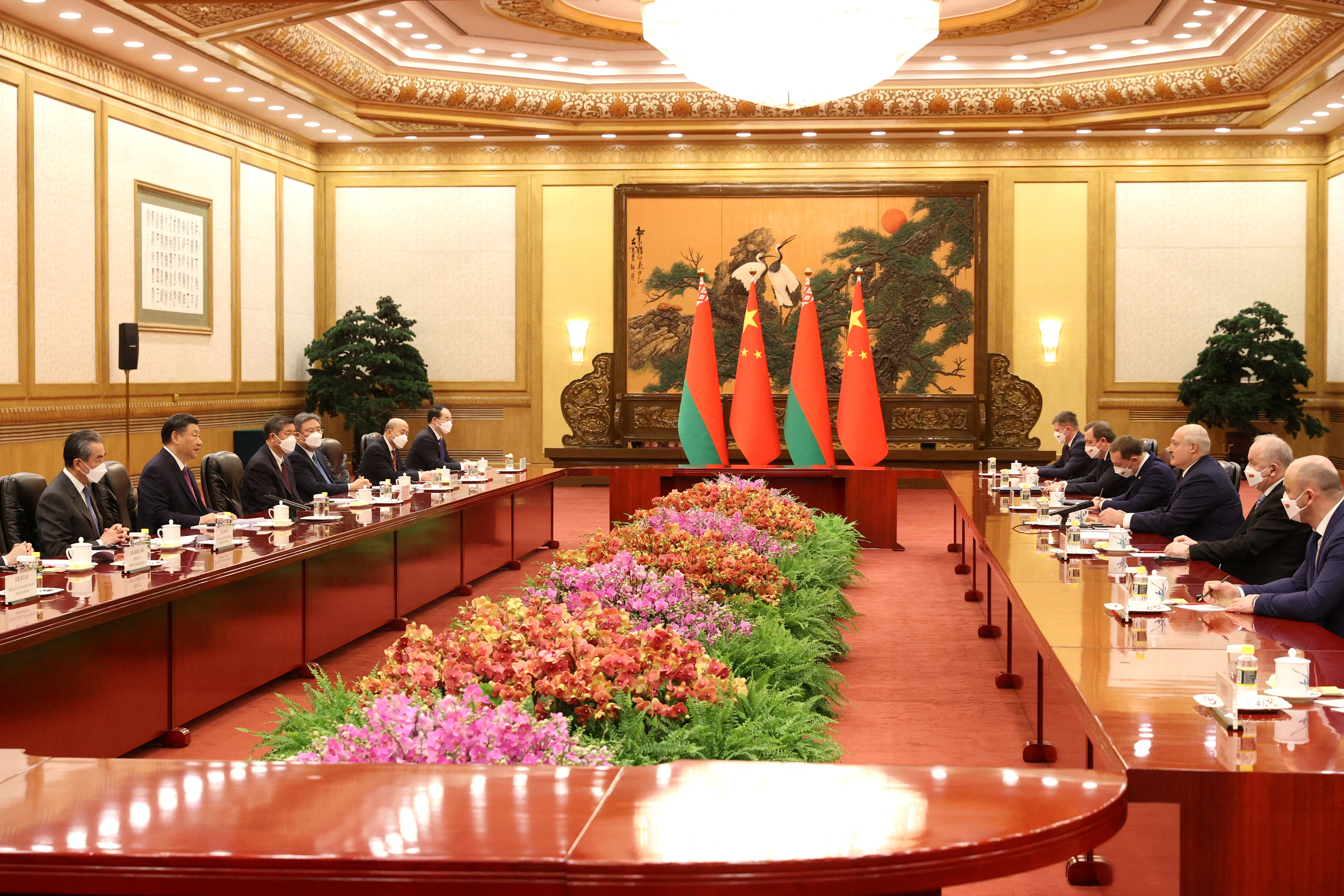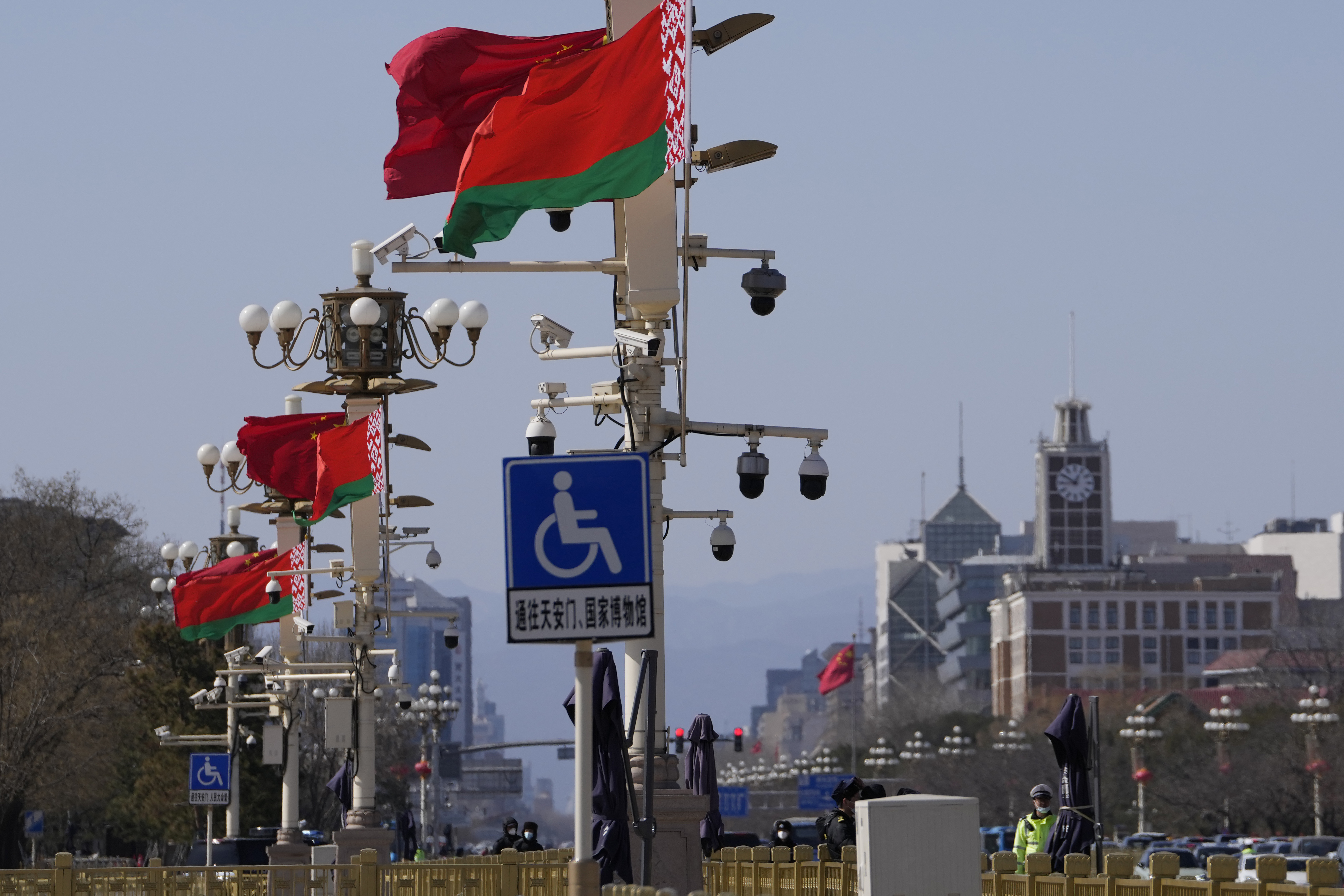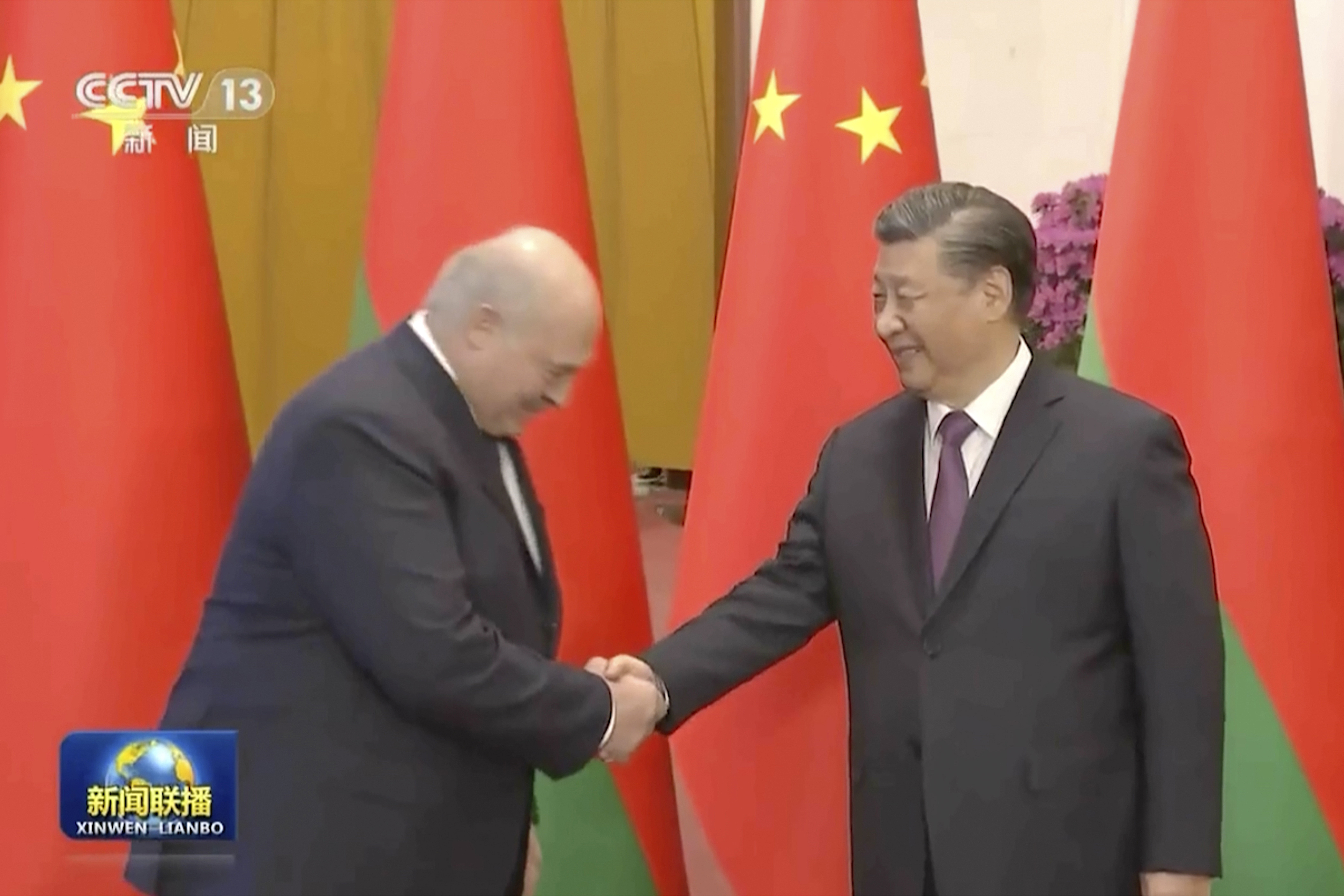
21 solemn shots on Tiananmen Square foreshadowed the splendor of the reception of the Belarusian president in Beijing. Last September’s declaration at the Shanghai Cooperation Organization summit in Uzbekistan on “all-weather mutual cooperation” – terminology that, according to the BBC, was only used for China’s relations with Pakistan – served as a good basis for the last three – an afternoon visit to China, where he was received by Chinese President Xi Jinping and other dignitaries, including the Prime Minister and Speaker of the National Assembly.
The visit was announced a few days ago, and expectations – at least from the Belarusian side – were high. Minsk is stymied by close ties with Moscow – with Beijing concerned about the country’s sovereignty – and subsequent Western sanctions that are draining its already dependent economy – which also worries officials in the Chinese capital.
On the agenda of Lukashenka and his colleagues was the expansion of economic cooperation between the two countries, which, according to analyzes, despite official statements to the contrary, has been “frozen” by the Chinese side in the past two years. Minsk officials are leaving China just $3.5 billion in economic cooperation and loans, according to the official Belarusian news agency Belta.
Theoretical announcements

Moreover, the official statements were deeply… theoretical. “This visit reinforces the truly strategic nature of our relationship with China. Last year, these relations were translated into all-weather and comprehensive strategic partnership and cooperation. During this visit, the heads of state confirmed this status and outlined some plans to strengthen and expand it,” Belarusian Foreign Minister Sergei Aleinik said, Belta reports.
“Chinese-Belarusian friendship is indestructibly strong,” Xi Jinping said to Lukashenko. “China and Belarus are the joint guarantors of international justice,” the official Beijing Xinhua News Agency reported.
Even a detailed report by the state-owned Belarusian news agency spoke of a scheme for investment in the Great Stone industrial park in Belarus, for the development of a freight rail network – Beijing is waiting for rapprochement with Europe, as is the case with US investment in Mexico, cultural and cultural relations and Minsk’s “absolute” support for Beijing’s 12-point proposal for a Russian ceasefire in Ukraine.
Putin’s embassies
Of course, Alexander Lukashenko, the most faithful ally of the Russian president, also acts as … Moscow’s ambassador to Beijing, since it seems that a new alliance is being built in Asia, a counterbalance to the Western alliance led by the United States. After all, it is no coincidence that Lukashenka’s visit to China comes just days after senior Chinese diplomat Wang Yi met with Vladimir Putin and the US Secretary of State toured Central Asia to salvage what he could from Beijing’s sphere of influence. It seems that Beijing always follows a path that is hardly influenced by the position of its allies. Moreover, according to international analysts, Lukashenka’s presence in Beijing is unlikely to lead Xi to more explicit support for Moscow.
However, Belta conveys the statements of the Minister of Foreign Affairs of Belarus, behind which lies the central core of Lukashenka’s visit to Beijing: “The world is entering an era of multipolarity. And we all understand that China has already become one of the main poles of the multipolar world order.”
After all, according to the Washington Post, the reception of one of Putin’s closest associates does not contradict the narrative that Beijing approves of Moscow’s actions – perhaps, as some American and European officials fear, even providing military assistance. “There was a clear push from Beijing, Moscow, Minsk and Tehran to show a narrative that says: “We have other options and we will proudly show them – you can impose any sanctions you want on us, we do not mind ,” he told US newspaper Raffaello Paducci, a senior fellow at the Royal Joint Institute for Defense and Security Studies in London. Meanwhile, Paducci pointed to Iranian President Ebrahim Raisi’s visit to Beijing in mid-February and a trip to Moscow last week by a senior Chinese diplomat Wang Yi as evidence of this demonstration of resilience against Western sanctions.
Relations between the two countries over the past two years

There are three pillars that define the Minsk-Beijing relationship in the period 2020-2022. First, the coronavirus pandemic. Trade relations between the two countries may have been put on hold due to restrictions imposed by ongoing lockdowns, but politically the two countries have been united by the same threat. As a sign of goodwill, Belarus sent two planes with humanitarian aid, and China thanked them with 130 tons of medical aid and 5 million doses of Chinese vaccines.
The second pillar, the political crisis in Belarus and its absolute dependence – economic, political, legislative – on Russia and its use to invade Ukraine, which, while worried China, never publicly criticized this attitude. On the other hand, Beijing has recognized Lukashenka’s victory in the 2020 elections and has maintained a neutral stance on massive Belarusian protests against its authoritarian leader.
The third pillar of the relationship between the two countries is the Russian invasion of Ukraine, to which Belarus contributed by “surrendering” its territories to the Russian army. Western sanctions, triggered by close cooperation between Minsk and Moscow, have embarrassed Beijing, which has begun to limit its investment in the country, which Belarus officially presents as if nothing is happening.
But then again, the relationship between the two countries remained largely on a… theoretical level. They support each other in the international diplomatic arena, both develop anti-Western rhetoric and equally arm themselves against the “color revolutions” that threaten their restrictive regimes, and ultimately Asian and Chinese bank loans to Minsk are sharply limited.
It might be worth taking a look at the numbers published in a study by Andre Eliseguiu and Olga Alesko-Lessels of the Friedrich Ebert Foundation and in an analysis by China Observers in Central and Eastern Europe. Presidential Decree No. 9, signed by Lukashenka in December 2021, set the task of attracting at least $900 million in Chinese loans to refinance the state debt in the period 2022-2024, ensuring annual investments in the Chinese economy of Belarus from the Asian Investment Bank and other banks, as well as the Silk Road Fund and the China-Eurasian Economic Cooperation Fund in the amount of at least $500 million from 2022. The directive also aims to attract Chinese investors to the Belarusian banking system. Public investment statistics are sketchy, but official figures for January-September 2021 say Belarus received only $14.9 million from the Export-Import Bank of China. Belarusian state media did not report on additional Chinese investment in 2022. Since December 2019, when Belarus received a $500 million loan, China has not provided any additional large government loans to Belarus.
The only economic area where Beijing seems to have its sights set on Belarus is fertilizer imports, as Minsk is the world’s leading producer. And Belarus may want to be a key node on the postmodern Silk Road, but China, as long as European sanctions in Minsk block its access to the European market, will backtrack on investment and economic development.
Visit rating

The Belarusian side, Belta reports, fully adheres to the principle of “one China”, supports the position on issues related to national security, territorial integrity and the rights of citizens. And China supports Belarus’ efforts to maintain political stability and economic development and opposes any external interference in Belarus’ internal affairs under any pretext.
The two countries have signed dozens of agreements on multi-level cooperation – in trade, education, diplomacy, sustainability and technology – but all this may not translate into real help for Belarus, which needs the support of China, if the West continues to isolate Minsk. from all its political, diplomatic and commercial activities.
This, apparently, will become a brake on China, which, despite the construction of the second pole of the neo-Cold War field, is most interested in the Western market. In addition, from the mission of the chief diplomat Wang Yi to the Old Continent for contacts with Europeans and from the statements of the former ambassador to Washington and the current foreign minister, it was seen that relations between Beijing and Washington should deepen.
Source: Kathimerini
Anna White is a journalist at 247 News Reel, where she writes on world news and current events. She is known for her insightful analysis and compelling storytelling. Anna’s articles have been widely read and shared, earning her a reputation as a talented and respected journalist. She delivers in-depth and accurate understanding of the world’s most pressing issues.